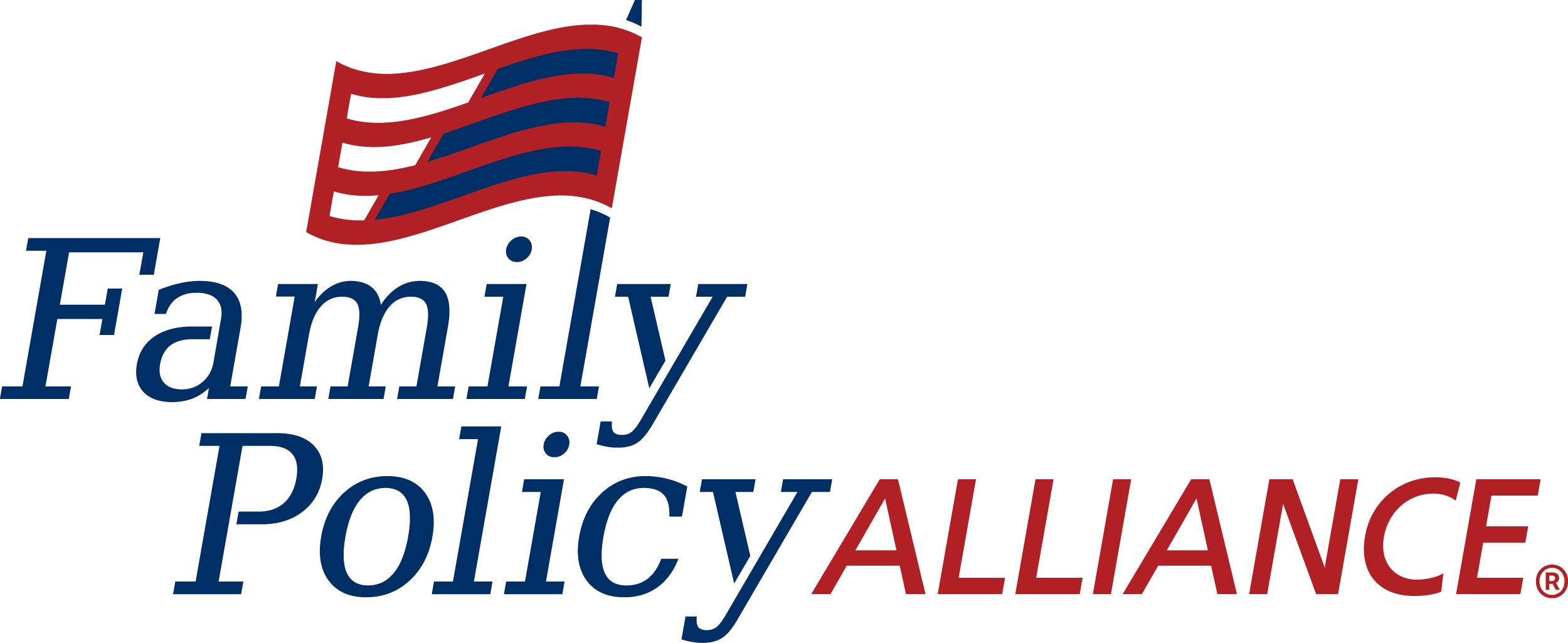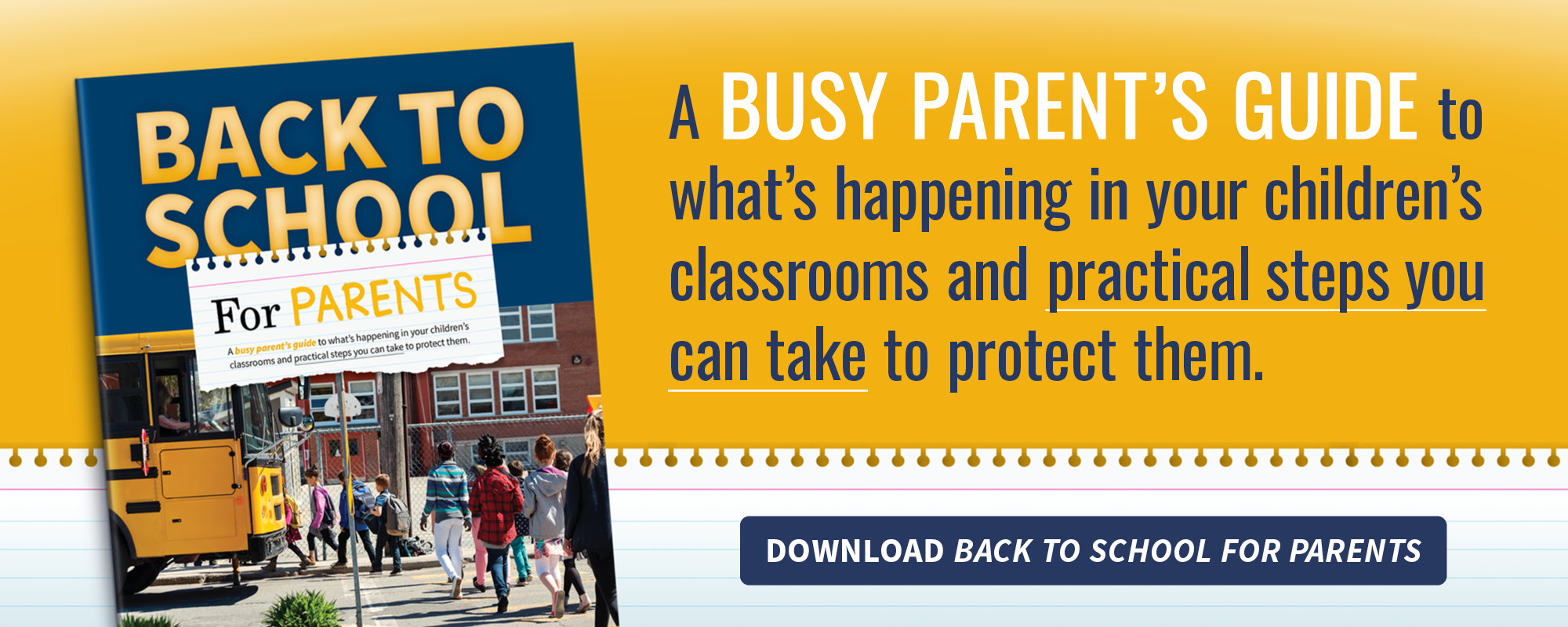Protecting Your Child in Today’s Classrooms A new school year brings excitement
Education
Family Policy Alliance knows that the best education system is one that gives children a wide-open future and fuel to explore God’s calling in their lives, under the loving and protecting guidance of their parents.
Parents know their children best and are in the best position to make decisions about their children’s education. Family Policy Alliance advances policies that provide more opportunities for parents to build an education best suited to meet their children’s unique needs. This means we support legislation that enhances school-choice opportunities for families. A future full of choices for children needs a present full of options.
A school environment should not be harmful to a child. It should not tell a child that her faith isn’t welcome in the classroom. Parents are the key to ensuring that a child’s educational environment does not undermine the family’s faith — or their child’s future. They have the right to be informed about what’s happening in their children’s schools, and what curriculum their children are exposed to. We advance policies that empower parents to have decision-making power when it comes to their children’s classrooms.

The Story of Education in America
For the majority of the first century of America’s existence, a large portion of American children were educated at home or in local schools run by their community.
In the early 20th century there was a push to ensure that everyone received the same basic education. Mandatory education laws grew in popularity in state legislatures with the goal that everyone would be able to read. While this goal was a good one, education moved further away from the family and local community. The centralization of education increased throughout the 20th century, and in 1979 the national Department of Education was officially made an independent cabinet agency.
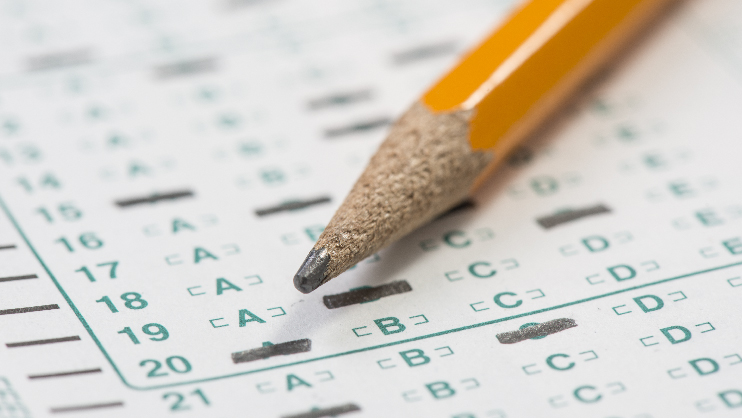
COMMON CORE
The Department of Education has implemented multiple programs to try to improve the education system. One of the most recent and controversial educational programs is known as Common Core. This program required each school district to follow a nationalized common curriculum for language arts and math. However, many parents and others did not believe these standards truly addressed their child’s needs or prepared them well for the future. Many states have refused to adopt these standards and have created their own standards.

EXPANDED CHOICE
As education became more nationalized, parents began to seek alternative education methods. Religious schools, primarily Catholic schools, have been around for decades, but the number of both nondenominational religious schools and schools associated with Protestant churches sharply increased in the 80’s and 90’s. Similarly, parents began to advocate for laws to ensure that they could homeschool their children. Overall, as the government pushed to nationalize public education, more and more parents began to look for educational models closer to home.

More School Choice Is Good
Parents should be empowered to provide the best education for their children whether it is at public, charter, private, or home school. Family Policy Alliance and our state-based allies have worked tirelessly to increase school choice for the benefit of all students.
Below is a summary of the educational options now available to parents, though not all are available in all states.
Public School
Public education, regulated by state and federal government, is available to all and has been used for good in many situations. Some states realizing the different needs of students have begun to offer options such as online educational programs, Advanced Placement courses, or dual-enrollment classes that give students a head start in college. Public school districts have also started to offer alternative high schools for trade-oriented students.
Even as public schools offer more choice, families are seeking alternatives because the public-education system exposes their children to ideas and opinions — imposed by the government — that are contrary to their family’s worldview. Concerned families desire to have a voice and be more involved in their child’s education.
Home School
The modern home school movement started as a reaction to the nationalizing of education. Families sought to take back their children’s education. Regulations on homeschooling vary by state, but today it is legal to homeschool a child in every state in the nation. It is estimated that almost 2 million students are educated at home. Homeschooling provides a family with an almost endless number of possibilities to tailor their child’s education to their child’s needs.
Co-ops allow students to take some classes at home, some in a private school, and even sometimes in a public school—depending on individual needs and goals. In some states, homeschool students are able to participate in extracurricular activities at public schools. Laws that give homeschool students the ability to access public extracurricular activities are known as Tebow Laws, named after Heisman trophy winner Tim Tebow, who utilized a similar law in Florida to play football in high school.
SEE IF YOUR STATE GIVES HOMESCHOOL STUDENTS ACCESS TO PUBLIC SCHOOL ACADEMICS AND ACTIVITIES.
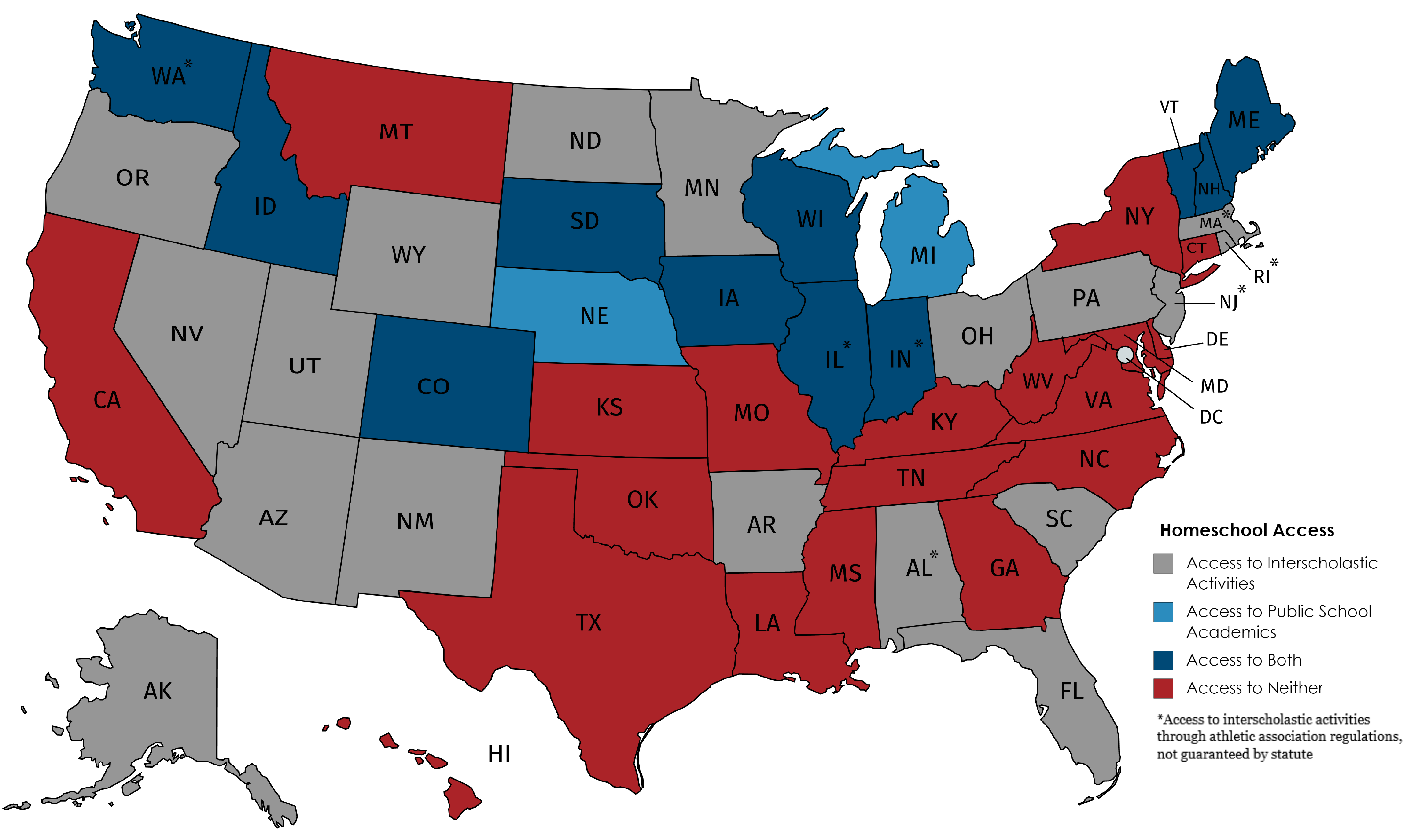
Charter School
Even in the public-school system, people began to realize that the one-size-fits-all method does not work for every child. Charter schools have begun to increase in number across the United States, providing parents and children options and expanded opportunities. A charter school does not charge tuition and is publicly funded. However, it operates independently from the public education system. Many of these charter schools have a particular educational focus or curriculum that is unique from nearby public schools.
Private School
Private schools have also grown in popularity. Some private schools are associated with a particular church, while others are nonsectarian, such as a Montessori School or a traditional private school. These schools are often more expensive than other forms of education. Many parents may need financial assistance in order to enroll their children in this sort of education. Many programs have been created in order to assist parents in this endeavor.
Paying for Educational Choice
School choice should be available to all families regardless of income or background. Family Policy Alliance advances legislation that helps parents afford to send their children to the school that best fits their unique needs.
Education Savings Accounts
Education Savings Accounts (ESA) allow parents to receive a portion of their tax dollars back. The parents can then use the funds in the ESA to pay for certain expenses such as school tuition at a non-public school, homeschool curriculum, online education, or tutors. Six states — Arizona, Florida, Mississippi, North Carolina, Nevada, and Tennessee — have an ESA program. Some states restrict their ESA program to special needs students, bullied students, students from military families, or students from failing schools.
School Voucher Programs
School-voucher programs allow parents to pay for tuition at a non-public school. Many of these programs are intended to be used by low-income students or students in failing schools. Vouchers are different than ESAs because they are normally directed at tuition cost only and are designated to be spent at a specific school. Fifteen states have voucher programs. The states are Arkansas, Florida, Georgia, Indiana, Louisiana, Maryland, Maine, Mississippi, North Carolina, New Hampshire, Ohio, Oklahoma, Utah, Vermont, and Wisconsin.
Tax Credits & Scholarships
Individual Tax Credits allow parents to receive a credit on their state taxes for their children’s educational expenses. This helps to ease the burden of paying for a public-school alternative. Five states have these types of programs.
Tax Credit Scholarships allow an individual or a business to receive credit on their taxes for donating to private nonprofits that provide students with scholarships to private schools. Eighteen states have tax scholarship programs.

The Bible teaches that parents have primary responsibility in educating their children.
Throughout Scripture, God instructs His people to teach their children about faith and how to honor God. For example, the Lord commanded the Israelite parents to teach their children about all of God’s mighty works in leading them out of Egypt—since their children did not experience these things firsthand (Genesis 11). He instructed the Israelites to teach their children to obey God’s commandments and to love and serve Him with all their heart and soul.
Scripture also tells us that when parents raise up their children in godliness, they will not depart from their instruction when they are old (Proverbs 22: 6). Fathers in particular are given special instruction to not anger their children—but to raise them up in the discipline and instruction of the Lord (Ephesians 6:4).
In other words, Scripture makes clear that God intended for parents to be responsible for the education of their children. It is the duty of parents to teach their children faith, morality, and righteousness. This God-given responsibility requires parents to be involved in decisions about their children’s education and empowered to ensure their children’s education aligns with their faith and values.
The God-given responsibility of parents to oversee their children’s education is indeed an essential one, and civil government must support that responsibility.
Religious Freedom in Education
Religious expression in schools, and especially any indication that the government might be funding religious expression in education, has been attacked in the courts.
FUNDING OF RELIGIOUS SCHOOLS
As part of our nation’s historic anti-Catholic bias, in 1875 James Blaine introduced a proposed amendment to the Constitution to prohibit government from funding religious schools. Thankfully, the anti-religious freedom “Blaine amendment” failed at the federal level, but similar language has been adopted by 37 states. More recently, legislators have questioned the constitutionality of education-savings accounts, vouchers, tax credits, and other attempts to help parents choose the best options for their children — thankfully the policies advancing school choice have continually been upheld by the courts.
Everson v. Board of Education
A law allowing money to be given to parents for school transportation costs was upheld because the parents — not the government — decided to transport the children to faith-based private schools.
ACSTO v. Winn
The Court held that a tax credit given to organizations that gave scholarships to private schools was not government funding for private schools because the scholarship was created and distributed by a private entity.
Mueller v. Allen
A Minnesota law allowing a tax deduction for educational expenses was determined constitutional because the money was not paid directly to religious schools by the government.
Trinity Lutheran v. Comer
The Court determined it was a violation of a religious daycare’s religious freedom to deny them public funds that were available to other centers.
RELIGIOUS EXPRESSION IN SCHOOLS
Many atheist groups have worked to remove all expressions of faith in public schools citing the so-called “separation of church and state”.
Their efforts threaten the right of teachers and coaches to pray or discuss their faith at school. They also threaten the right of students to carry their Bibles at school, discuss their faith, or form religious groups that meet on school property.
These outward expressions of faith arise from a teacher’s, coach’s or student’s personal relationships with Jesus Christ. Yet, they are being told that these natural expressions violate the Constitution—often an assertion that no legislation or court opinion has ever stated. When, in fact, what is being violated is their religious liberty.
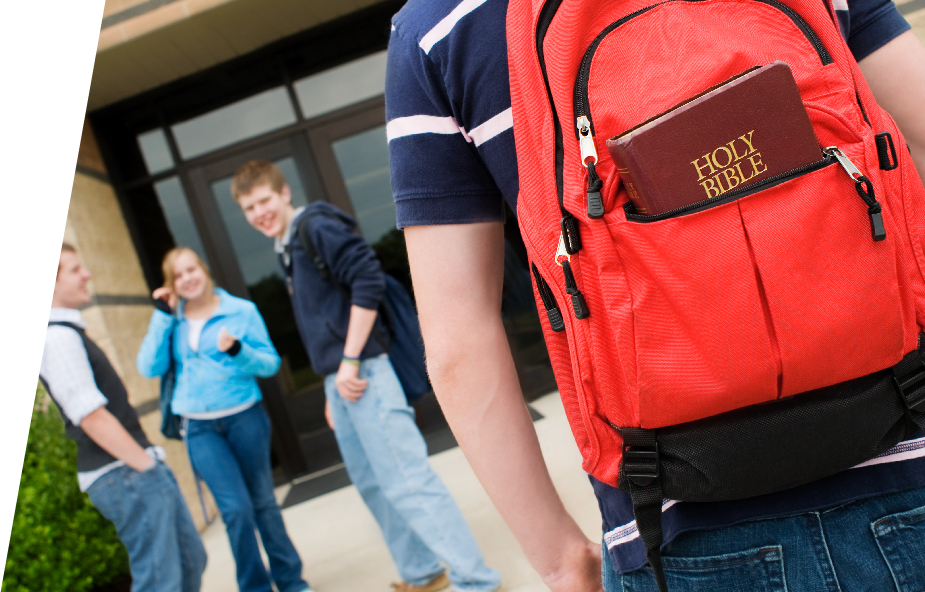
Faith and Freedom in Education
Education legislation we were involved in during the 2019 legislative session.
This bill will reinforce student and educator religious-freedom rights in public schools to ensure that they are protected.
GA H.B. 53
Named after Tim Tebow, this bill supported by Family Policy Alliance of Georgia would ensure that students who are homeschooled have the opportunity to participate in sports teams and other extra-curricular activities offered by public schools.
Georgia S.B. 163 & H.B. 87
This bill would allow many parents to receive funds to use towards the educational model that works best for their child.
Georgia S.B. 173
Called the “Hope Scholarship” and modeled off of an existing law in Florida, this bill would allow bullied students to receive funds to attend a private school of their choice in order to find a safer and better school environment.
Kansas H.B. 2150
This bill ensures that students and educators have the freedom to live out their faith in schools.
Kansas H.B. 2288
This bill would allow parents to receive a portion of the funds allocated for their child to use in the educational program that works best for them.
S.B. 2142

A Tale of Two Visions
There are clearly two competing visions for American education today. One vision centers around parental rights and the family. The other is driven by a radical political agenda.

PARENTAL RIGHTS IN EDUCATION
Education is one of the areas where parents must exercise and be given the most authority. Children are given to parents by God to be intimately known and lovingly protected — with the right to direct children’s education lying squarely with parents. Even the Supreme Court has recognized that parents have the God-given right to direct the upbringing of their children. It is vital that we continue to work to protect this. To read more about our work protecting parents’ rights in education and to learn about your rights as a parent. Visit our Parental Rights page.
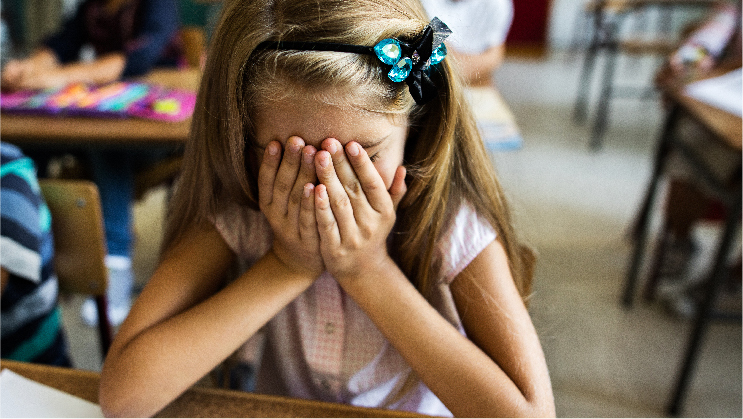
SEXUAL EDUCATION IN THE CLASSROOM
Many national activist groups, such as LGBT organizations, Planned Parenthood, and the ACLU want to use schools to teach increasingly explicit and deviant material to children as young as Kindergarten. This is harmful to the child. At Family Policy Alliance we recognize that sexuality is a gift given by God and teaching children about this topic is best done by parents. Further, we know that a Christian sexual ethic that teaches children about abstinence and avoiding sexual risk is the best way for children to flourish.
Children are treasures to be cherished — not tools to be used in an agenda.
We envision a future where families have the freedom and financial means to select a better school when a liberal agenda harms their children and disregards the values parents are instilling.
Parents are included — not excluded because they “get in the way” of an agenda.
We envision a future parents’ constitutional right to direct the care, upbringing, and education of their children is restored — because parents are best situated to protect and instill values in their children.
Faith and other viewpoints are welcomed — not censored for defying an agenda.
We envision a future both students and teachers can freely live out their faith in school — not forcing anyone to believe as they do, but praying together and for their school, and sharing their faith openly with others.
Curriculum teaches children fact — it is not rewritten to fit an agenda’s narrative.
We envision a future parents can trust that their children’s schools will stick to instruction and not indoctrination.
What's Happening in Education
We never stop in the defense of life, the family, and your religious freedom. Keep up-to-date with what is happening across the nation, and learn how you can join us in taking action.
Education, Family, Podcasts, SoCon Report
Dear friend, Did you know the One Big Beautiful Bill includes the
New Pro-Family Education Wins from Washington, D.C., with Michael King
Education
Dear Friend, We have an urgent request for your help: Congress needs
ACT NOW: Iowa, Help Bring School Choice to America!
Education
Dear Friend, We have an urgent request for your help: Congress needs
INDIANA: Act Now to Bring School Choice to All of America!
Education
Dear Friend, We have an urgent request for your help: Congress needs
ACT NOW: Help Bring School Choice to Kansas!
Education
Dear Friend, We have an urgent request for your help: Congress needs
ACT NOW: Help Bring School Choice to Minnesota!
Stay connected with email updates
Unleash your citizenship! Get news, commentary and alerts delivered right to your inbox.
